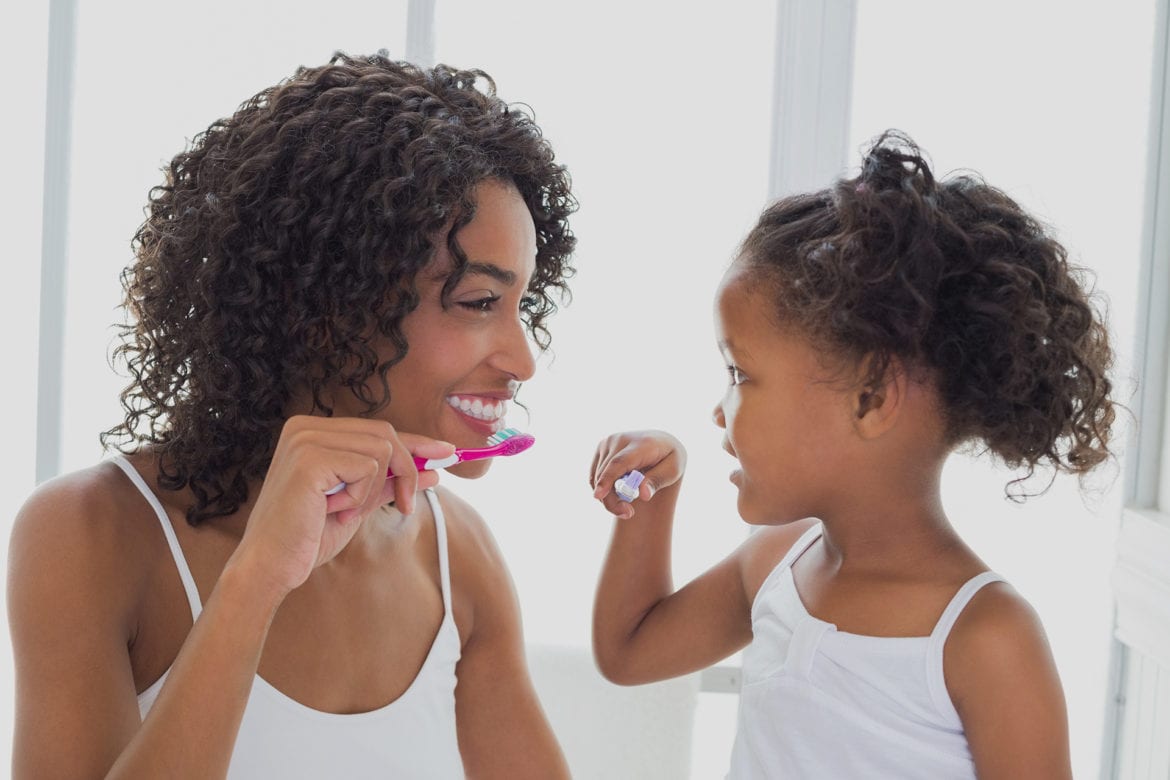Your child’s healthy future depends on their dental health. Starting as early as possible is the key. This allows time for the dentist to become acquainted with their unique bone structure and to notice any issues with gums or the growth pattern of their teeth. The dentist can then find out what needs to be done now and in the future. Additionally, the kids’ dentist can address any oral hygiene or diet problems immediately, before decay develops.
The Link between Early Oral Hygiene and Lifelong Health
Your overall health throughout life starts young. What most people don’t realize is your health starts in your mouth. Your gums are a gateway to your bloodstream. Any infection in the gums can go into the bloodstream, causing serious illness. That’s not all. They have linked bad gum health to heart disease. Over time, bacteria from the gums can slowly and silently leak into the cardiovascular system.
Those who have cardiovascular issues may be unaware their oral health could be a cause. Your child learns proper oral care. Once it becomes a habit, it’s unlikely they’ll experience a problem. The same goes for bad habits. It’s a lot easier to get used to bad habits and neglect oral health. Why? Well, how many times in your busy day do you think of brushing your teeth? Few, if at all.
So, the earlier kids form a habit, the longer it’ll stick around, and they can enjoy lifelong, quality health. Here’s a final thought on that. It takes more than great oral hygiene for amazing health. But, everything that keeps it that way has to become a habit, right?
Cracking that twice-per-day oral hygiene habit gives your kids a positive habit-forming ethic. Tooth decay also hinders the chewing mechanism and causes a nutritional issue that affects total body health.
Setting the Stage for Healthy Habits: Brushing and Flossing for Young Children
Children love fun and they’re more likely to engage in a fun activity. Parents should supervise their kid’s brushing techniques and habits and make sure they are helping them reach all the hard-to-reach areas. Parents should start brushing their child’s teeth as soon as the first one comes in. When the second tooth cuts and it’s touching another, then flossing should begin.
A soft-bristled brush can be used on the one or two teeth that erupt at the beginning. Some companies sell single-head, small toothbrushes for kids. Make no mistake; even one tooth can experience decay. Think of all those juice boxes your kids drink!
Identifying and Preventing Early Childhood Cavities
The old saying says, “An ounce of prevention is worth a pound of cure”. Unfortunately, we’re too busy to pay attention to the minutia of oral health. That’s no excuse. It only takes a few minutes a day to care for your mouth. Think of the other things kids do that take that amount of time.
Monitoring their dietary habits that affect the teeth is another layer. Sugary drinks and acidic foods damage the precious enamel on the teeth and cause cavities to form. Not waiting until your child is a pre-teen before regular checkups happen is the best way to prevent childhood cavities. You’d be surprised how common it is to wait.
Be a team player and work with the dentist to monitor any changes in your child’s teeth. That could range from bleeding gums to brown spots or other discoloration of the teeth that may denote a nutritional issue or vitamin deficiency.

